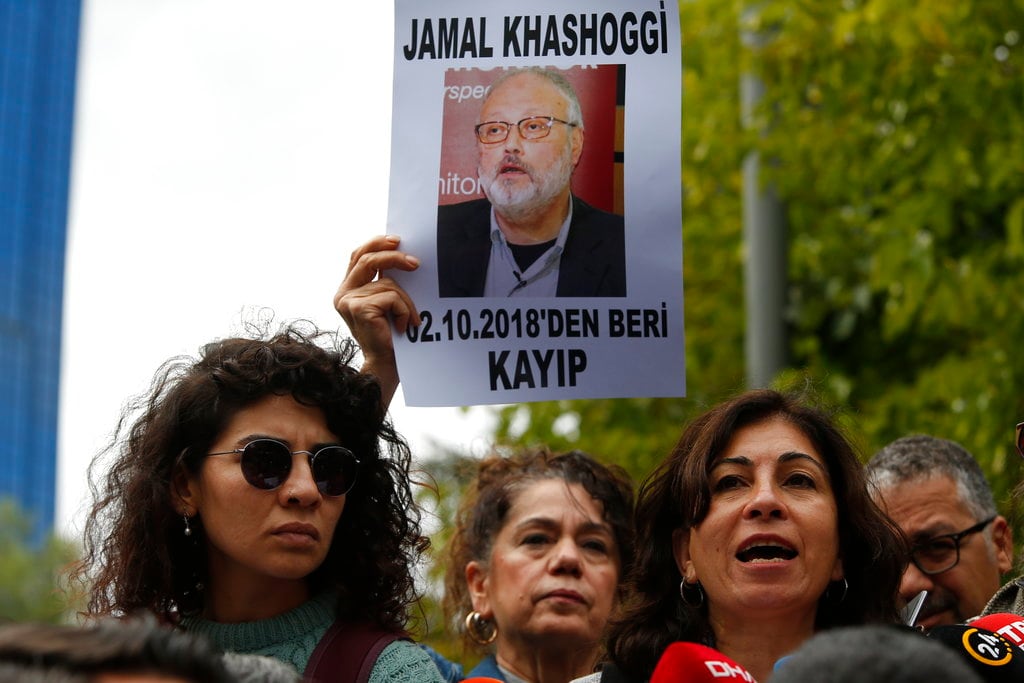BRUSSELS – Pressure is growing on the European Union and its member states to stop arms sales to Saudi Arabia following the alleged murder of Saudi journalist Jamal Khashoggi.
An arms embargo is supported in a new resolution by the European Parliament, the latest attempt in a string of actions compelling EU foreign policy chief Federica Mogherini to act against the Middle-Eastern country. This also includes a letter signed by European lawmakers from several countries.
One senior Member of the European Parliament, Linnea Engstrom, is among those now demanding demanding an embargo, declaring, “It is time to stop doing business with this regime.”
“The Khashoggi case bluntly shows what kind of regime we're talking about. Doing business with these corrupt regimes which constantly violates human rights is a huge mistake,” she said.
"All new (arms) sales should not be allowed to Saudi Arabia at the moment," said Bodil Valero, another MEP from Sweden who sits on the Parliament's subcommittee on security and defence.
Saudi Arabia is being urged to give a full explanation of what happened to Khashoggi. Turkish officials believe Khashoggi was murdered by Saudi agents after entering the Saudi consulate in Istanbul, but the Saudis have denied this.
RELATED

While some individual member nations have already curbed or cut exports, an EU-wide ban would severely hit the lucrative arms trade to the Saudis for some member states, particularly those whose trade links with the country are deep-seated, such as the UK.
Last month, Spain became the latest country to halt an arms deal with Saudi Arabia when its government cancelled a sale of 400 laser-guided bombs to Riyadh. A down payment of $11 million was reportedly returned to the Saudi government. According to the Stockholm International Peace Research Institute, Spain sold $352 million worth of weaponry to Riyadh between 2014 and 2017.
In January, Germany said it would no longer sell arms to parties fighting in Yemen, though critics now argue that Berlin has since softened its stance. Regardless, some German arms manufacturers, such as gun-maker Heckler and Koch, have reportedly found it difficult to secure export permits for sales to the Middle East.
At the same time, countries like the UK and France show little interest in curbing their lucrative deals with Gulf countries.
Valero sees the UK and France as the "biggest problem" when it comes to Saudi arms sales. He said the UK has "the most to lose" if an embargo were put in place, citing the figure of 48 percent of London's arms sales going to the kingdom.
RELATED

France is another key player in the Saudi arms game. In April, the two countries agreed a new intergovernmental accord to conclude weapons deals. France, the world’s third-biggest arms exporter, counts Saudi Arabia among its biggest purchasers, and defense firms like Dassault and Thales have major contracts there.
Five EU countries feature among the top 10 arms exporters: France, Germany, the UK, Spain and Italy. In 2015 the EU countries taken together were the world’s second-largest arms supplier with 26 percent of global exports of major conventional weapons, behind the United States with 33 percent and before Russia with 26 percent.
One EU official said, “This illustrates how much the prosperity of the EU’s defense industries is tied to exports outside the EU. The Middle East was by far the most important destination for EU arms exports in 2015.”
On the Khashoggi case, UK Conservative MEP Charles Tannock said, “I still recognize the West has large commercial interests in bilateral trade deals with Saudi Arabia and diaspora communities living and working there, so we must maintain friendly relations whilst remaining critical at the brutality and lack of fundamental human rights in that strategic Middle Eastern country."
Martin Banks covered the European Union, NATO and affairs in Belgium for Defense News.








